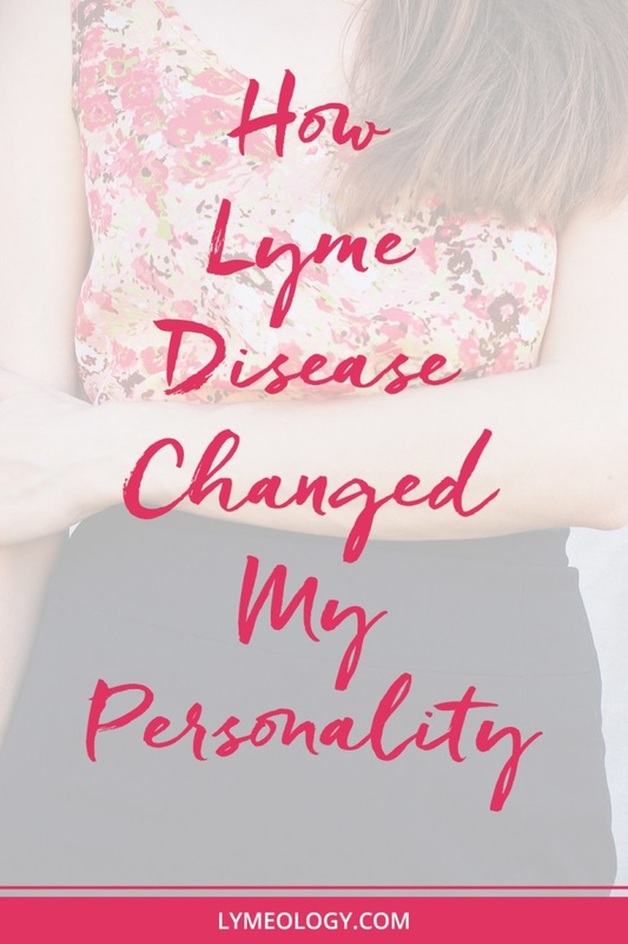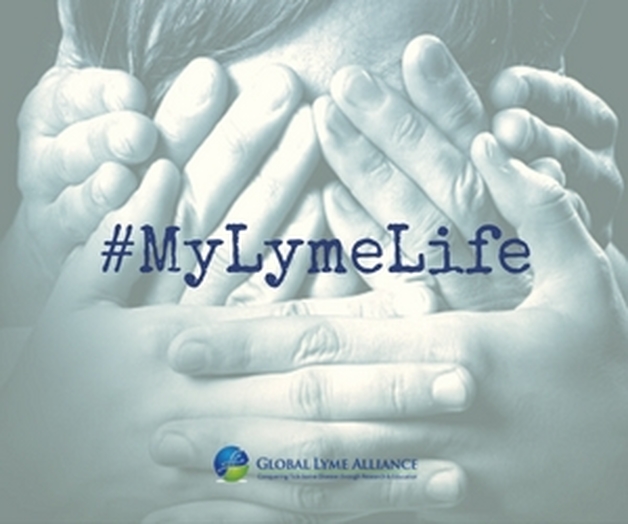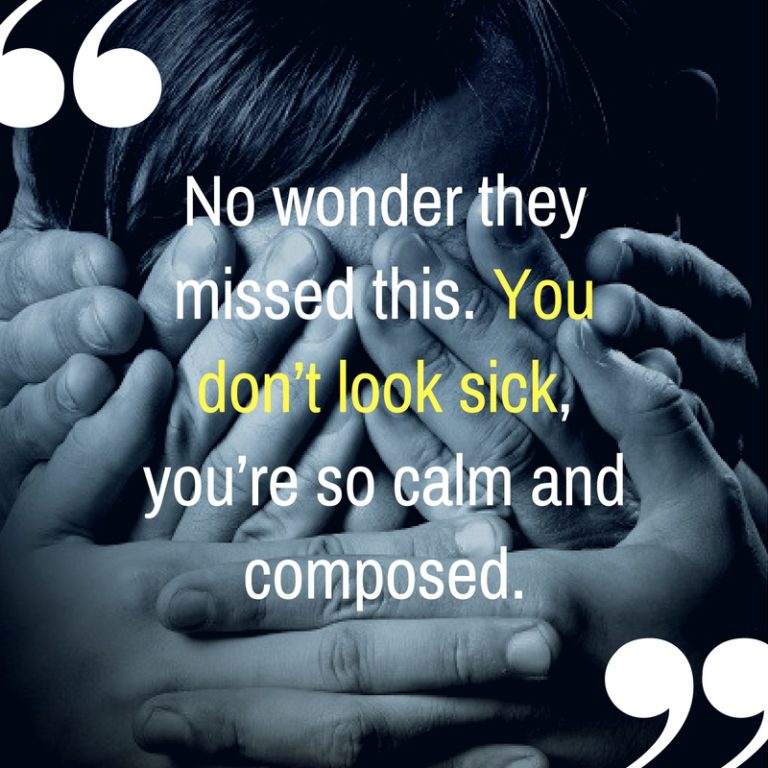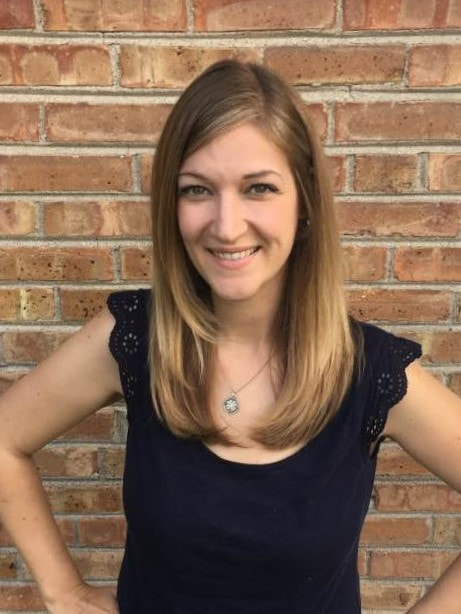|
This article was first published on Lymeology in 2016, a website that is no longer active. Most of the links on this post are informational, but a few are affiliate links to help maintain this website. We often think of personality as fixed. It's something you are born with and grow into as you get older. But when I look at my personality before Lyme and after Lyme I see a much different person. Once upon a time I was the life of the party, energetic, and extroverted. I drank, stayed up late, and ate whatever I wanted. The only thing I knew about nutrition was the outdated food pyramid. I took no supplements whatsoever. Though I knew diet and exercise were important, I thought it was something I could change later in life when I really needed to. I'd never heard of integrative medicine or complementary therapies. I went to my primary care doctor once a year and was followed by an endocrinologist for my thyroid disease (which I now know is related to Lyme). If a doctor told me to do something or take a pill, I did it, no questions asked. I was very career focused and all my energy went to my job. I had zero work life balance and let stress get to me, but, again, I always thought it was something I could change later. Then, along came Lyme. There are some things about the old me I miss and some things about the new me I prefer. Here is a list of how Lyme changed me: 1. I’ve become an introvert. Before contracting Lyme disease, I was what most people would describe as an extrovert. I was outgoing and always doing something off the wall. You would never catch me at home on a Saturday night. Now, I still like spending time with friends, but in smaller groups and for shorter periods of time. Socializing is the thing that continues to be the most draining for me, so I have to do it in short bursts. I enjoy spending time alone doing healing activities like meditation and writing. When I haven't had some "me time" in a while I crave it. 2. I've become very health conscious. Five years ago I was eating take out for many meals. I thought it didn't matter as long as I felt okay. I still struggle to maintain a strict anti-inflammatory diet, but now I know the importance of being gluten-free and limiting dairy. In addition to eating better, I know the importance of practices like meditation and yoga to calm the fight-or-flight response and allow myself quiet space to heal. 3. I’m less “fun.” I used to love going out on the town and staying out late. Some of that declines with age anyway, but now I don't drink at all. Bars no longer appeal to me and I have a strict bedtime of 10 o'clock. Sometimes I worry that I’m a less fun person, but it just means I have to seek out different ways to have fun. I like low key activities, like sitting on the back porch and talking, going to a funny movie, taking a slow walk in a botanical garden, or going to a mellow concert. I'm still fun, just not the same kind of fun, and my sense of humor never went away. 5. I stopped looking at my career as my identity. "What do you do?" is often the second question new people ask you after learning your name. My career has always been very important to me. It's the thing you prepare for starting when you are 5 years old. I was a school social worker for 10 years, but I eventually had to leave for a part-time position. I was no longer a school social worker, but I learned that it didn't define me. It was what I did, not who I am, and there are thousands of other facets of my personality that are worthwhile. 6. I live in the moment. I used to live five years out, always planning for when I was going to be happy. With Lyme there are no guarantees, so even if we are not feeling 100%, we need to be present where we are. In the past if I was sick with a cold or the flu I would push myself to get out of bed and go to work or clean the house. Now I listen to what my body needs that day. If it’s a good day I will go out and do something, if it is a bad day I will take it slow. 7. I learned what was really important. It's cliche to say I’m grateful for my illness because it opened my eyes to what I needed to change in my life, but it's true. I also learned that money is not as important as your health. If you don't have your health, you have nothing. I left a steady well paying job, because I needed time and space to heal. It was a hard decision, because Lyme treatment is expensive, but in the end if I didn't leave I never would've gotten better. Living with Lyme changes you. There are parts that are positive and parts that are negative, but in the end you simply have to adapt and understand this is the person you were meant to become. "The changes we dread most may contain our salvation." - Barbara Kingsolver
1 Comment
This article was first published on the Global Lyme Alliance blog on September 16th, 2016. Most of the links on this post are informational, but a few are affiliate links to help maintain this website. I remember the first time someone told me, "You don't look sick." I was sitting in urgent care and the doctor told me I had a rare infection in my spine after seven months of being passed from doctor to doctor with no diagnosis. "No wonder they missed this. You don't look sick, you're so calm and composed." Little did she know the internal turmoil that had been going on in my head. I thought I was slowly dying, and that I would die before anyone could figure out what was wrong with me. One of my legs had blown up like a balloon, my inflammatory markers kept crawling higher and higher, and the pain had gotten so bad I felt like I was being stabbed in my side. But I guess I didn't look sick. On the final episode of The Oprah Winfrey Show in 2011, Oprah famously said, "I've talked to nearly 30,000 people on this show and all 30,000 had one thing in common—they all wanted validation. They want to know do you hear me? Do you see me? Does what I say mean anything to you?" Lyme disease is the ultimate "invisible illness," a name given to diseases you can’t see. Not only do many of us look normal, but our illness is not recognized by conventional medicine. We are told our symptoms are "all in our head," or that we are "faking it." The CDC and IDSA say our illness doesn't even exist, referring only to Post-Treatment Lyme Disease Syndrome, as opposed to chronic Lyme disease, which according to the CDC website "almost always gets better with time." Funding for Lyme disease prevention, research and treatment is minimal. Compare the $25 million in Federal funding for Lyme disease to the $42 million in spending for West Nile virus. West Nile is a terrible illness. However, when you compare its 662 total cases in the United States to the more than 300,000 people who contract Lyme disease in the U.S. every year, it's clear that our health and safety doesn't seem to be much of a priority. The second time I was told I didn’t look sick was ten months later. The cause of the infection continued to elude the top doctors in Illinois, and I was left with no viable treatment options. For a while, I'd been seeing a therapist, who specialized in health issues, to help me cope with the crippling anxiety of being undiagnosed. After working with an integrative medicine doctor and doing research on my own, I suspected Lyme disease. I explained my suspicions to my therapist and she said, "People with Lyme disease are really sick." I wondered what impression I'd been giving her. I knew I felt really sick; apparently I still didn’t look it. It turns out it was Lyme disease and multiple co-infections. Once I had a name for it, I thought everything would be different. I thought doctors would finally take me seriously, no matter what I looked like. Then, I started learning more and more about the controversy behind chronic Lyme disease diagnosis and treatment. I knew what I had, but no one in the medical community would give me any validation. The third time I was told I didn't look sick was more recent. I was back in the hospital awaiting a third biopsy on my spine, and a young resident told me, "You are the healthiest person we've seen all day." I felt like she was looking right through me. I didn't go to medical school, so I don't know how doctors are taught to analyze physical appearance, but I know enough people with chronic health conditions to know you can't always see the chaos that is happening inside the body. At a time when chronic and invisible illnesses are being diagnosed at epidemic rates, we might want to stop looking at outside appearance to determine how sick someone is or how much help they may need. It seems like a dangerous way to assess and diagnose, which may lead to missing something or minimizing a serious issue. The misconceptions aren't limited to the doctor's office. At times, family and friends disregard Lyme patients, because they can’t see our pain or fatigue. It's human nature to judge a person's health based on appearance. If you look fine, you must be fine, right? We are expected to work, do chores, be social, and help out just like anyone else. Things you would never ask of someone in a full body cast or with a gaping wound. For that reason, we have to constantly come up with excuses as to why we can't do something, and feel the need to justify what we have is real. Like Oprah said, we all want validation. What is the cost of telling someone, "You don’t look sick"? It's not what you say, it's what the person hears. Every time someone said those words to me, I heard, "I don't hear you, I don't see you, and what you say doesn't mean anything to me." And that is what truly makes people feel invisible. "Be kind whenever possible. It is always possible." - Dalai Lama |
WelcomeI'm Kerry (She/Her/Hers) and I am a licensed therapist, group facilitator, poet, writer, & speaker. This is a place to acknowledge and validate our suffering and trauma, while also learning how to turn toward aliveness and spaciousness. Categories
All
Archives
April 2024
|
|
Copyright © 2024 Kerry J Heckman All rights reserved. Disclaimer.
|
|




 RSS Feed
RSS Feed